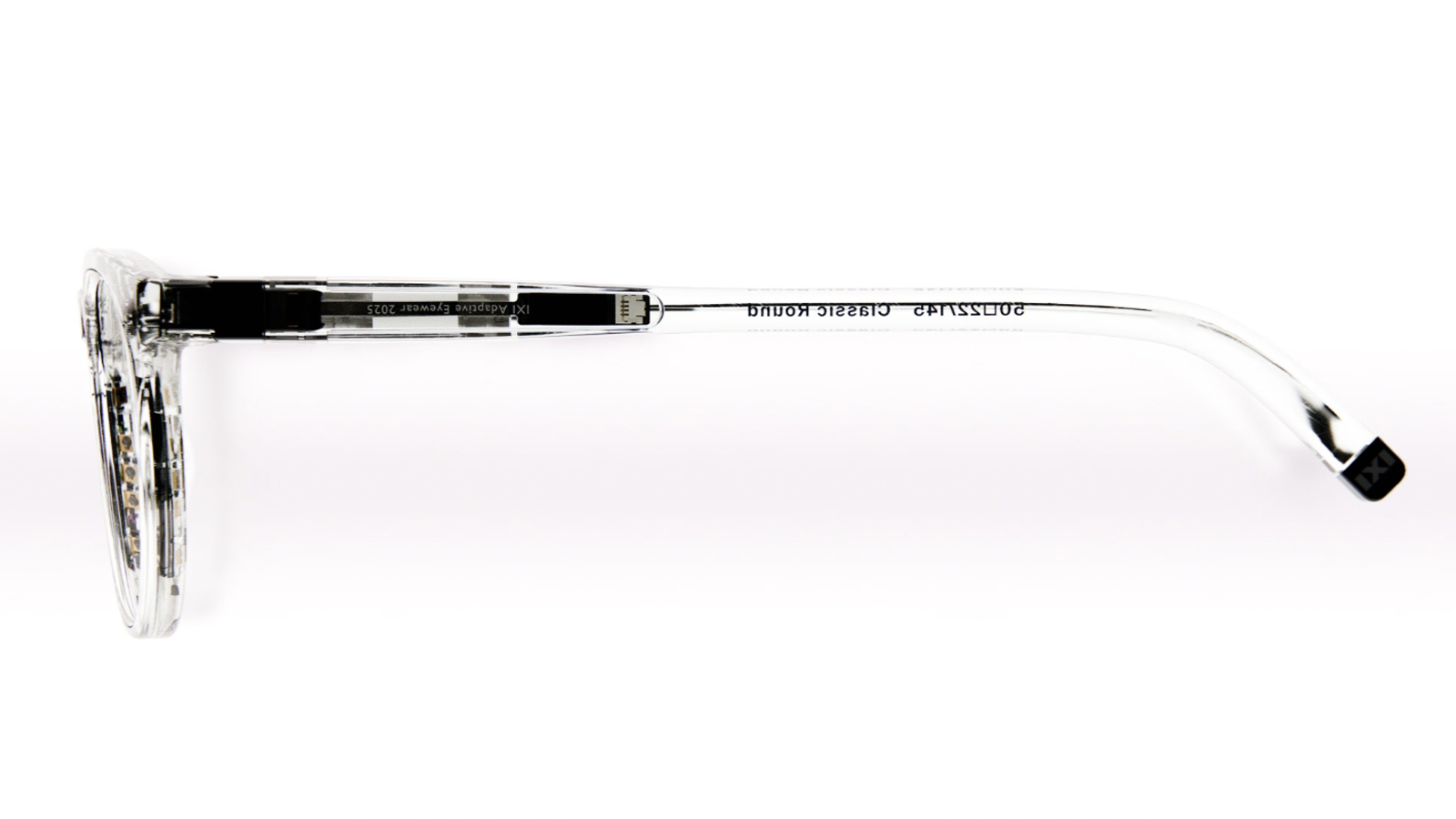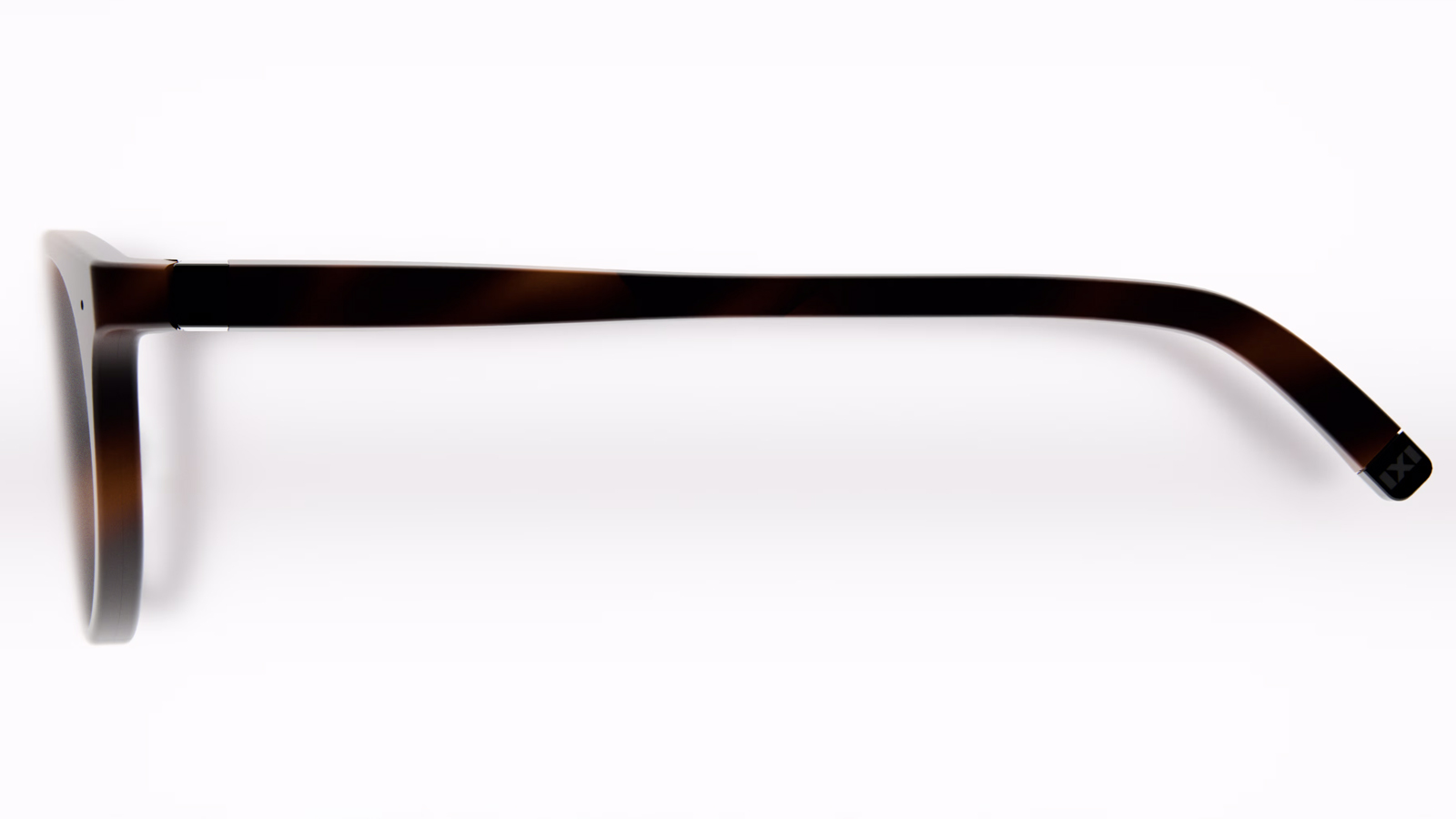- French startup IXI is working on glasses with autofocus lenses
- Built-in sensors track eye movements
- Liquid crystal lenses adjust focus to match what you’re looking at
Squinting to see a sign, tilting your head to look at someone, peering down your nose to read a menu: for millions of far-sighted people, glasses are a constant compromise. But a new kind of smart eyewear is aiming to clear things up, with the help of autofocus lenses.
Finnish startup IXI is one company developing frames with adaptive optics. Its glasses uses tiny sensors to track what you’re looking at, then liquid crystal lenses to adjust your view to suit. So you can go from checking your phone to watching a game in a blink.
What’s more, no-one should see any difference. IXI’s goal is to make them look and feel just like your normal glasses, with electronics tiny enough to fit into the frames. So while they might not let you ditch your specs entirely, autofocus glasses won’t require you to wear a bulky headset either.
You may like
Take a look around
When it comes to far-sightedness, the standard fix is currently bifocals. These lenses are divided into two zones: one for distant objects, the other for near detail. When a user wants to read something up close, they have to look through the latter. It’s a solution with a learning curve – and one that can involve unnatural head tilts and limited viewing angles.
Progressive lenses offer a bit of a refinement, smoothing the transition between near and far, but they still have focal sweet spots. Fundamentally, you can’t look anywhere in the frame at anything you want. That’s the problem IXI plans to solve.
At the heart of its design is a powerful pairing: eye-tracking sensors and a fast-shifting lens system. The sensors monitor eye movements, firing harmless light pulses to measure the distance between you and what you’re looking at. This data is then fed back to liquid crystal lenses, which can rapidly change their curvature to give perfect focus.
According to IXI, the lenses adjust in just 0.2 seconds. The human eye focuses in around 0.4 seconds, which should mean there’s no discernible lag between looking and seeing. That’s particularly true for older users: our eyes get slower to focus as we age, because the eye’s natural lenses become less flexible. This is called presbyopia and it’s the same condition that causes long-sightedness.
This kind of optical tech has been talked about before, but mainly in a research setting. IXI is one of the first labs attempting to miniaturize the concept into a product for daily wear. It helps that the startup has secured some $36 million (around £27m / AU$56m) in funding to accelerate development.
That said, IXI isn’t the only company working on autofocus glasses. Laclarée and Elcyo are rival ventures developing similar solutions. None of the three has yet brought a commercial solution to market, which is perhaps indicative of the obstacles that remain before the frames land on public faces.
Prescription-grade optics are subject to strict medical regulation, which means the autofocus lenses will need to pass muster. There’s also a question of durability whenever it comes to moving parts. Other factors include how to incorporate batteries to power the glasses, while keeping the frames lightweight and comfortable.
Still, the promise is compelling: a single, adaptive pair of glasses that can replace reading specs, distance lenses and bifocals. It’s a step towards truly intelligent eyewear. If IXI can pull it off, the days of peering over rims might be behind us.
You might also like…
Services Marketplace – Listings, Bookings & Reviews

